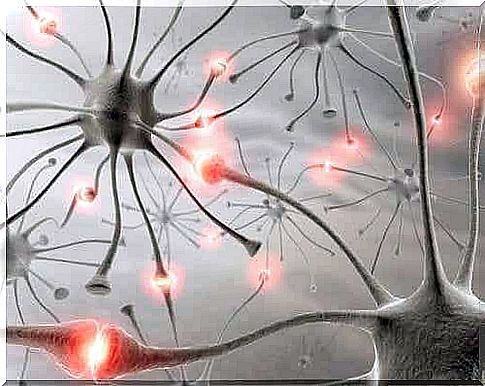The Benefits Of Music In Neurological Disorders

The benefits of music in neurological disorders are undeniable. British neurologist Oliver Sacks notes that music can calm us down and improve our mood. It can also excite us and help us perform better at work! Sacks also discovered during his career that music was very helpful for patients with neurological problems.
We have all read or heard that music has an amazing effect on people suffering from Alzheimer’s disease. In those quiet worlds where memories and life itself are hazy, simply listening to a song from their childhood can affect a patient emotionally and behaviorally. It’s almost as if the brain is “waking up” after a period of rest.
This helps us understand that there are areas in the brain that remain intact. This is despite the cognitive decline associated with this type of dementia. The parts of the brain associated with long-term musical memory are often preserved.
However, music does not only have a positive effect on people with neurodegenerative diseases! Music therapy can cause interesting changes in patients with depression, epilepsy, multiple sclerosis, Parkinson’s disease and even in patients who have had a stroke. So it’s worth taking note of this approach to neurorehabilitation!
The benefits of music in neurological disorders

The use of music therapy in medical and neurological rehabilitation is becoming more common. Studies tell us that music has a very positive effect when it comes to pain treatment and motor rehabilitation. This applies, for example, to research conducted by Ralph Spintge of the Department of Pain Medicine at the University of Lüdenscheid in Germany.
It is encouraging, for example, that patients with Parkinson’s disease and multiple sclerosis can improve their quality of life. Specialists still don’t know the benefits of music in neurological disorders on an in-depth level. However, it is clear that music cannot cure or undo any ailments.
What the evidence does show, as Doctor Moisés León Ruiz, member of the Spanish Society of Neurology (SEN), points out, is “an improvement in neuronal activation, neuroregulation, learning and neuroplasticity. The effect is especially notable in patients with Alzheimer’s disease and vascular dementia.
The benefits of music for psychological well-being in aging
In a study conducted by the Brain Research Unit at the University of Helsinki, Dr. Teppo Särkämö notes the benefits of music in neurological disorders such as dementia. This is where the benefits of music are most encouraging and take effect, as we have already mentioned.
Music elicits sensory, motor, cognitive and heavy emotional responses in patients with Alzheimer’s disease, Parkinson’s disease or any other neurodegenerative disease associated with aging. It also activates temporal regions in the brain, such as the cerebellum.
In addition, specialists in neurological rehabilitation have also seen improvements in people who have had a cerebrovascular accident (CVA) after which speech problems (aphasia) occurred. This can reduce the greatest difficulty patients have in expressing themselves verbally.
The benefits of music in epilepsy
Among the benefits of music in neurological disorders, one that stands out in particular is its anticonvulsant effect. For example, specialists have seen that music therapy is able to reduce up to 24% of the number of seizures or seizures that patients experience.
A study conducted by doctor Aleksi J. Sihvonen at the University of Helsinki has been published in the journal The Lancet . According to this research, music has a remarkable effect on regulating the dopaminergic system.
By this we mean that it has a relaxing effect on a neuronal level. Although music does not completely stop the seizures, there is a reduction in the number of seizures. This is very positive!
The benefits of music in patients with neurological disorders and depression

Depression is a comorbid condition in many neurological disorders, such as cerebrovascular accidents, epilepsy, multiple sclerosis and Parkinson’s disease. It is very common for these conditions to affect patients emotionally, which can then lead to a mood disorder.
In fact, the benefits of music in neurological diseases extend to this area as well. For example, music therapy improves patient compliance. By this we mean that people feel happier and more receptive to taking pharmacological and psychological treatments.
Studies such as those conducted by doctors Alfredo Raglio, Lapo Attardo and Guilia Gontero at the University of Pavia in Italy also examine this relationship. Music improves mood in patients with neurological disorders. That’s why we need to keep this in mind, especially when it comes to making a plan for patients with so many therapeutic needs.
There aren’t many treatments that are cheap or as easy to organize as listening to music. Music activates the brain, makes people happy and gives a little encouragement every day!









